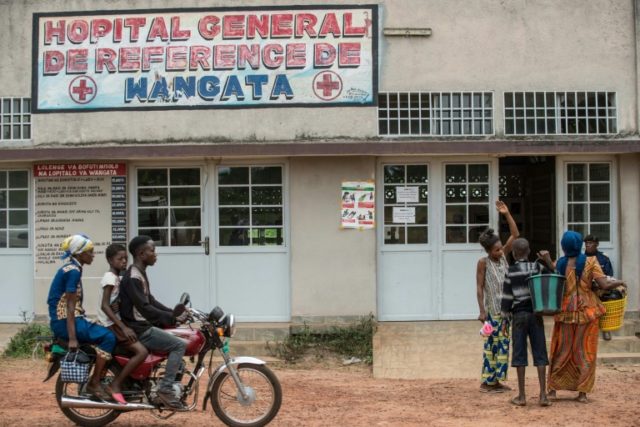International public health authorities confirmed 52 cases and 22 deaths in the ongoing outbreak of Ebola virus in Democratic Republic of Congo this week, where locals’ fear that medical professionals are intentionally spreading the disease has triggered at least two cases of families stealing patients out of hospitals.
Some locals believes that Ebola is a curse, not a medical condition, and prefer traditional healers to use magic against the curse rather than modern medicine. Others suspect the international relief organizations trying to prevent the disease from spreading are the ones who brought the virus into their communities, making containment and treatment difficult.
These concerns echo the struggles of fighting Ebola in Guinea, Sierra Leone, and Liberia in 2014, when an outbreak there killed over 11,000 people.
The incidents in which families stole patients out of hospitals occurred on Monday in Mbandaka, a port city near the urban capital of Kinshasa. According to Reuters, family members smuggled the relatives out by “walking them out of the hospital before putting them on the back of motorcycles.”
One of the patients died at home hours later. The other patient died dramatically in a local evangelical church, where an unidentified witness told Reuters she “came to testify that God had cured her of her illness” but died shortly after hospital officials found her in the church and brought her back to their care.
At least 19 people attended the church meeting where she had last spoken, leaving them exposed to the virus.
“It is unfortunate but not unexpected. It is normal for people to want their loved ones to be at home during what could be the last moments of life,” World Health Organization spokesman Tarik Jasarevic told CNN. “We are working with local community leaders, traditional leaders and healers, and religious leaders to better engage with communities so that we understand each other better and can work together in stopping the outbreak.”
Reuters notes that these two cases of suspicion, while the most dramatic among them, were not the last. Some reports have begun to trickle in that locals near Mbandaka have begun to threaten medical staff attempting to enter their villages to stay away.
Such hostility was a staple of the West African Ebola outbreak that lasted from 2014-2016. Relatives struggled to steal away patients from hospitals in Sierra Leone, Guinea, and Liberia, fearing that they were being killed. Local publications claimed that the United States had fabricated Ebola to kill Africans.
In a particularly violent incident in Guinea in 2014, an angry mob attacked a Doctors Without Borders treatment station, throwing rocks at the doctors and tents where patients were being held in isolation. Local residents believed Doctors Without Borders had brought the virus to their village to kill them. Doctors Without Borders was forced to withdraw.
Families also attacked health workers for incinerating bodies, preventing a traditional burial but also the traditional washing of bodies, which allows for easy transmission of Ebola.
An Ebola outbreak often begins with the consumption of “bush meat” – monkeys, rats, bats, and other smaller creatures consumed in areas of Africa where sources of protein are scarce. From there, humans can spread the virus to each other through bodily fluids like blood, sweat, and saliva. Ebola can be sexually transmitted.
Among the biggest challenges in containing the Ebola virus is tracking who has come into contact with an Ebola patient or may have inadvertently touched a contaminated bodily fluid. Medical professionals are struggling now, reports state, to find and test anyone who may have come into contact with the two quarantined patients during their escape. Doing so in an urban area, where many people can come into contact with each other or touch doorknobs, guard rails, and other common items, is significantly more challenging than in rural areas.
To prevent the current Ebola outbreak from triggering as much panic as the 2014 one, international aid groups are reaching out to local religious organizations and traditional healers in the hopes of using them to ensure locals that going to hospitals is not a death sentence.
“We try to raise awareness and tell people that, no matter their beliefs, it is crucial for patients to remain in health centers for treatment,” DR Congo’s Health Minister Dr. Oly Ilunga Kalenga told Voice of America this week. “Religious and traditional leaders must be involved, because there are many beliefs surrounding the Ebola virus.”
According to the UN Children’s fund in a report released Wednesday, the WHO has confirmed 31 cases of Ebola, has documented 13 probable cases, and 8 suspected cases of infection. 22 people have died since May 3, 2018.
Unlike the 2014 outbreak, an experimental Ebola vaccine exists, which the Congolese government has allowed the WHO to distribute in an attempt to contain the virus.

COMMENTS
Please let us know if you're having issues with commenting.